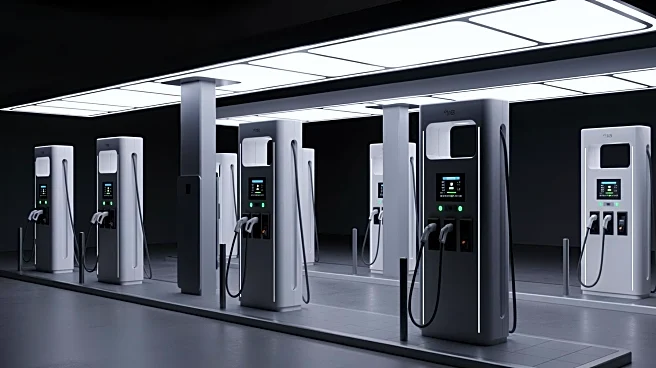What's Happening?
Electric vehicle (EV) sales in the United States have experienced a significant decline following the expiration of the $7,500 federal tax credit. During the Ford Pro Accelerate conference, Ford's Chief
Executive Jim Farley predicted a drop in battery electric vehicle (BEV) demand without the tax incentive. This prediction was confirmed by Ford's October sales figures, which showed a 25% year-on-year decrease in BEV sales. The decline in sales has also been reflected in reports from other automakers like Hyundai and General Motors, with the latter announcing layoffs at its factories.
Why It's Important?
The reduction in EV sales highlights the critical role that government incentives play in promoting the adoption of electric vehicles. The expiration of the federal tax credit has made EVs less financially attractive to consumers, potentially slowing the transition to sustainable transportation. This development could have broader implications for the U.S. automotive industry, affecting production plans, employment, and investment in EV technology. Automakers may need to reassess their strategies to maintain competitiveness in a market without federal incentives.
What's Next?
In response to declining sales, automakers might lobby for the reinstatement of federal tax credits or seek alternative incentives to boost EV adoption. Companies could also focus on reducing production costs to offer more competitively priced vehicles. Additionally, the industry may see increased efforts to educate consumers on the long-term benefits of EVs, such as lower operating costs and environmental impact. The situation could also prompt discussions on new policy measures to support the EV market.










